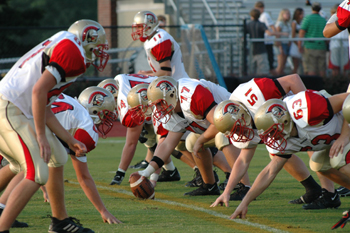 |
 |

Aug/Sept 2005
Education Guide
The Extracurricular Advantage
by Wendy Hersh
 |
Parents must weigh many factors when choosing a school, public or private, for their child. While test scores, teacher-to-student ratio, location and convenience are some of the standard yardsticks, other important ones exist as well: clubs, activities, and afterschool programs-all great ways for your child to make new friends who share common interests.
When 8th grader Arianna Skibell took part in the school production of The Wizard of Oz at Greenfield Hebrew Academy this past spring, she already knew that she loved the theater. What she didn't know was how many new friends she would make-even with children from younger grades. Like many other schools, Greenfield holds multiple lunchtime and afterschool activities on its campus, including art classes, band, chess, drama, Tiny Tot Tennis, Playball and for middle-schoolers, sports teams.
The best way to find out about activities offered at the school of your choice is to call and ask. Usually there are a number of clubs and teams in each academic category available, from the school literary magazine to a Science Olympiad, robotics or math team. Don't forget that some of these activities, such as the school newspaper, are actually classes that your child may have to register for beforehand.
Also, many schools are making an effort to provide their students with resources that encourage a well-rounded extracurriuclar experience. Children attending Mount Paran Christian School, for example, will soon share usage of a state-of-the-art performing arts center that is currently in progress on their campus. A concert hall, black box theater, dance studios, an orchestral rehearsal hall and a grand hall will certainly provide ample room for students, clubs and teams to
gain hands-on experience.
Not every program, however, may be run by the school itself. Campuses often allow outside contractors, who also hold classes at other locations, to develop activities for students. These groups, such as Playball, an international franchise, tend to have a uniform curriculum, making it easier for parents to prepare their child for the activity.
Jennifer Hall, whose daughter Jordan participated in Brownies and Young Rembrandts, another franchised activity, admits that her then first-grade daughter didn't usually enjoy participating in activities where she didn't know what to expect or who else was attending. Young Rembrandts, however, which took place at Jordan's school, State Bridge Crossing Elementary in Alpharetta, "allowed her to explore her creative interests while in a 'safe' environment," says Jennifer. "I think it really helped her to feel more of a connection to her classmates and to her school."
Many children also attend classes or activities which aren't held at school, but are offered by the YMCA, the Jewish Community Center, or through a private entity or independent studio. Throughout Atlanta, for example, there are many karate centers, dance schools, sports leagues and more.
Before you sign your child up for an activity or league, find out if schoolmates attend. Imperatori Karate in Sandy Springs, for example, attracts children from Mt. Vernon Academy, Greenfield Hebrew Academy, Holy Innocents Episcopal School, Atlanta International School, and elsewhere. If you don't know other parents whom you can ask, try contacting the studio or league directly. Participating in an activity outside of school can help children bond with their classmates.
Also, the team atmosphere and camaraderie of athletics can make sports the perfect venue for your child to develop long-lasting friendships. When shopping for sports leagues, be sure to do your homework. Registration is often well in advance of the season, and there are a plethora of options available. Many leagues begin at age four and continue up through high school. Keep in mind that costs and practice schedules and locations can vary.
However, whether your child is interested in practicing the trumpet or throwing a pigskin, there is no doubt that both on-site and off-site programs can give students an advantage. The added social component of sharing common interests during and after class can help your child make friends and feel at ease in their new school and community.
|
 |
|
 |